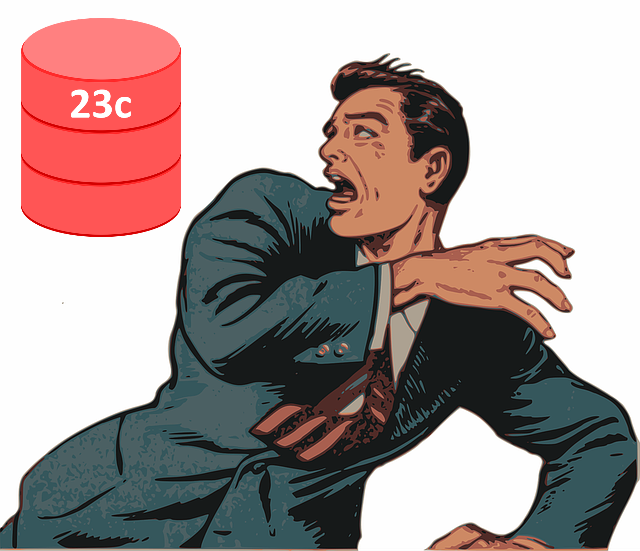
Every time there is a new database release on the horizon it’s worth looking at the deprecated and desupported features in that release, so you can start planning for the future. Here is the full list from the documentation.
Behavior Changes, Deprecated and Desupported Features for Oracle Database
I’m going to comment on a few things that standout for me. You might find other things more interesting…
Deprecated
DBUA and Manual Upgrade Deprecation : About time! From 21c onward AutoUpgrade is the preferred upgrade approach. Signalling the deprecation of the other approaches is welcome in my opinion. If you’ve never used AutoUpgrade you can see some examples here.
Oracle Persistent Memory Deprecation : Intel killing Optane was the writing on the wall for Oracle Persistent Memory Database (PMEM) and Oracle Memory Speed (OMS) File System. This is not really a surprise.
Deprecation of the mkstore Command-Line Utility : Not a major thing, but I will probably need to revisit a handful of articles to do some small edits. As pointed out by Piotr Wrzosek, the mkstore utility is used for credentials when using a secure external password store. I’m guessing this will be baked into another utility like orapki going forward, but we will see. (see update 2)
DBMS_RESULT_CACHE Function Name Deprecations : I love this move. References to “black lists” are changed to “block lists”. I personally try to use “allow list” and “block list” instead of “white list” and “black list” in conversation. Regardless of any other motivation, I think they are more descriptive.
Desupported
Non-CDB Architecture : This was deprecated in 12.1.0.2 and desupported in 21c. I’m listing it here because 23c is the first long term released where this is desupported. Most people won’t have progressed past 19c, and may have resisted the multitenant architecture. You can’t resist any longer. I’ve written loads about pluggable databases here. Please get up to speed with it.
Original Export Utility (EXP) Desupported : For some reason this feels like a “WOW” moment, but in reality I can’t remember the last time I used imp/exp. The IMP utility is clearly still supported to allow direct upgrades from older releases. Can you believe it’s about 18 years since Data Pump was introduced? 🙂
Oracle Enterprise Manager Database Express (EM Express) Desupported : This feature never really hit home with me, so I’m not sorry to see it gone. For most stuff you can just use SQL Developer which replicates the functionality. Of course, if you have Cloud Control, you wouldn’t be using the express feature anyway.
Transport Layer Security versions 1.0 and 1.1 Desupported : Great! If you do still need to make database callouts to old services that don’t support TLSv1.2 or above, just put a load balancer or reverse proxy in front of them and you are sorted. We usually do that anyway to ease certificate management for database callouts. See here.
Traditional Auditing Desupported : Cool. I prefer unified audit policies anyway, and it’s been the preferred method since 12.1, so it’s hardly a surprise. I mentioned this here.
Desupport of 32-Bit Oracle Database Clients : I can’t remember the last time I used a 32-bit client or server, so this doesn’t phase me.
Remember
Deprecated is not desupported. You can continue to use deprecated features, but you should be looking to move away from them before they are desupported in a future version.
The desupported stuff shouldn’t come as a big surprise as most things have been deprecated for some time. In some cases over many releases.
Make sure you check the full list for yourself, as there might be something important you need to think about.
Cheers
Tim…
Update 1: As mentioned in Mike Dietrich’s blog post (here) the public docs are currently for Oracle Database 23c Free, so the final on-prem release may include some changes. Keep your eyes open. 🙂
Update 2: Martin Bach confirmed by assumption that the credentials functionality would be included in a later version of orapki, as mentioned in this post.